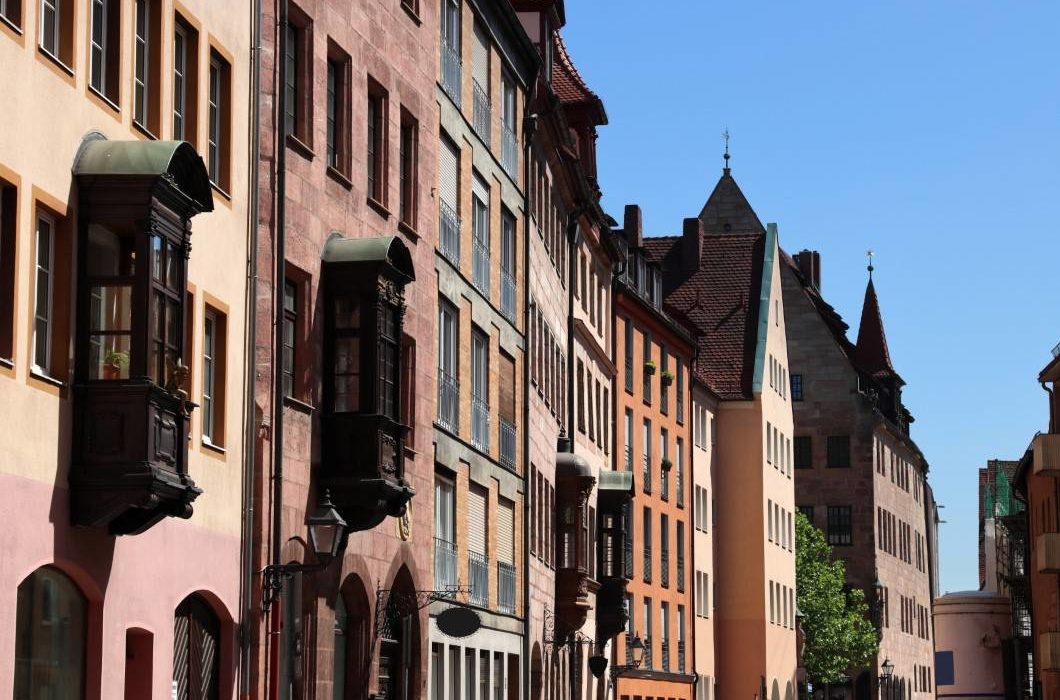
You might also like:
The German city of Nuremberg is likely to follow Munich’s example and adopt a measure against holiday apartments offers on platforms like Airbnb. Once the measure is approved, anyone who makes their home available to holiday guests for more than eight weeks a year could be fined up to 500,000 euros.
Nuremberg’s economic advisor Michael Fraas (CSU), who in January was still skeptical about this step in view of the expected personnel costs, now considers the statute proposed by the Greens and SPD to be reasonable. A study carried out by the economic department showed that in 2017 around 600-holiday apartments in Nuremberg were fully and permanently rented to holiday guests and thus withdrawn from the market.
With more than 300,000 apartments in Nuremberg, this does not sound like a mass misappropriation. However, the public authorities point out that only 1500 new apartments were built each year, but the city has been growing for years and prices on the housing market are rising sharply. In addition, the economic department expects that the number of tourists in the alleged private accommodations will continue to increase.
According to Airbnb, about 1800 accommodations are offered in Nuremberg via the platform. Of these, 55 percent are complete apartments, but almost all of them are only rented out “occasionally”. The Nuremberg City Council estimates that Airbnb will advertise about 500 accommodations exclusively available to tourists, and adds further 100 apartments that can be booked via other platforms.
The new statutes aim above all to reduce the number of wild guest accommodations, which have increased in recent years, but also take effect if housing is converted for other reasons. In Nuremberg, those who use an apartment as an office or practice without a permit or leave it vacant for more than three months without trying to rent it will also be prosecuted in the future.
Subject to the approval of the city council, the administration will initially create five new posts to enforce the statute. Employees are to be hired as soon as possible and will start working in the coming months. For a long time, the city leaders avoided these expenditures. They preferred to employ the staff in the town hall for the approval of new apartments and the planning of building areas and social housing. However, the objective of 2200 new apartments per year, which was set three years ago, has not yet been achieved, the economic department concludes critically.
Therefore, the focus will continue to be on the construction of new holiday apartments, but also on the existing housing stock. In order to justify the financial expenditure, the economic advisor in his report to the city council presented an unusual estimate: If the city of Nuremberg were to try to create 600 empty apartments itself – by building them, it would have to spend 130 million euros for them (at an average of 216,000 euros per apartment).
Munich evaluates its misappropriation statute as a success. There, Dorothee Schiwy, a social affairs officer, reported on the effects to the responsible committee at the end of November 2018. Four employees take care of classic holiday apartments, four others take care of rooms that are rented to medical tourists. From the beginning of 2016 to August 2018, the city imposed a fine of almost 190,000 euros on landlords of unauthorized holiday apartments and demanded a further 900,000 euros from landlords accommodating medical tourists. Until the end of 2017, the fines imposed in Munich were limited to 50,000 euros. It was not until the beginning of 2018 that it was increased tenfold to the level targeted by Nuremberg. According to the social affairs officer, the Special Investigation Group in Munich ended a misappropriation of 298 apartments in 2017 alone.
Source: tourism-review.com
